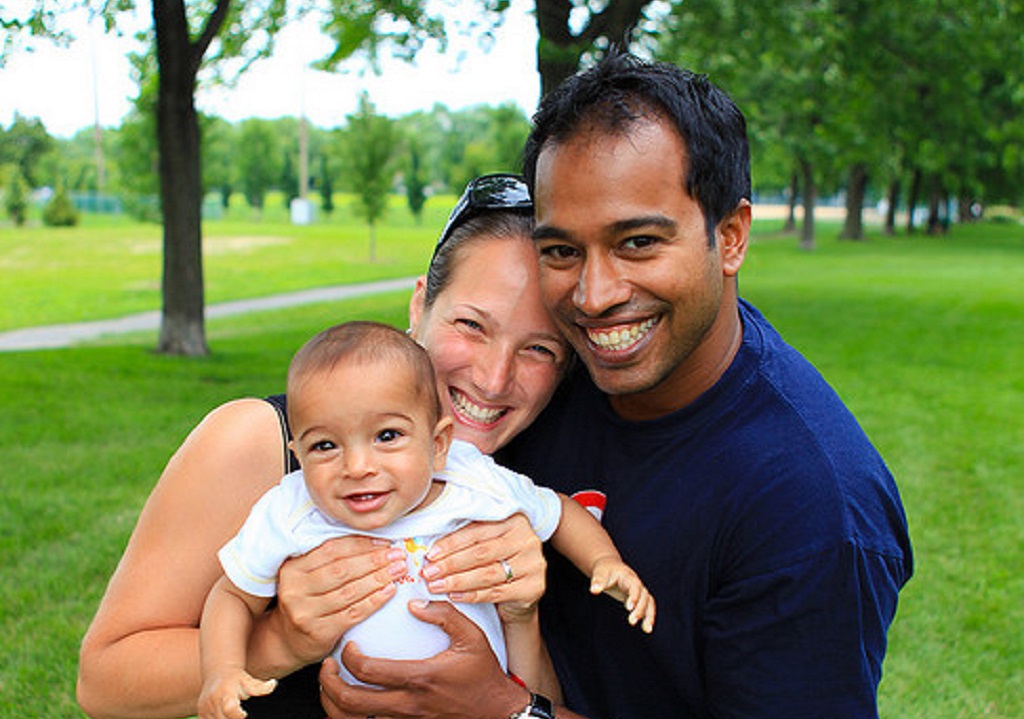
For Immediate Release
Contact: Virginia Rutter / Framingham State University Sociology
vrutter@gmail.com / 206 375 4139
CCF PRESS ADVISORY: Attention Cohabitors: Having a baby before you marry no longer raises your risk of divorce
September 16, Austin, TX— Today the majority of weddings take place between couples who already live together. And recent research shows that, unlike the past, living together before marriage does not raise a couple’s risk of divorce. Until now, however, it seemed prudent to tell couples to “put a ring on it” before they had a baby. Couples who married after their first child was born were much more likely to divorce than couples who married before starting their family.
Another rule bites the dust: New research, presented today to the Council on Contemporary Families, shows that couples who marry after their first child is born now stay together at the same rate as those who marry before the child arrives. Pushing your baby carriage before your marriage no longer raises a couple’s risk of divorce.
In “What Happens When Couples Marry after the First Baby?”, Kelly Musick (Cornell University) and Katherine Michelmore (University of Michigan) compared couples who had their first child between 1985 and 1995 and those who had their first child after 1997. Consistent with the “old facts” of family life, couples from the earlier period who married after the birth of their child were 60 percent more likely to divorce than couples who married before having a child. But just a decade later, couples who married after their child’s birth, whether one year later or five, had no higher a chance of divorce than couples who bought their baby carriage after marriage.
The timing of new parents’ marriage didn’t matter, but getting married did. Cohabiting parents who did not marry at all had a break-up rate twice as high as those who got married. About 30 percent of cohabiting new parents had broken up within five years of the birth of a child. The researchers express concern about the impact of such instability on children but warn:
It is not at all clear that if we could magically assign these cohabiting couples to marry, their family relationships would be more stable. Cohabiting couples tend to have less education and income than married couples, and it may be that those who do not marry are a particularly disadvantaged group.
It is also possible, Musick and Michelmore add, that such couples do not marry because they have relationship problems or personal issues that raise their risk of breaking up, with or without marriage. They conclude:
Marriage is less a silver bullet than it is an outcome of a whole set of factors linked to stability and security that help parents stay together. The stark and growing differences in divorce risks between couples with little education and those with a college degree undermine the notion that marriage itself can solve the bigger problems that stem from economic uncertainty and inequality.
Times are changing fast. Explains Stephanie Coontz, Council on Contemporary Families’ Director of Research and Education: “This research is one more example of the remarkably rapid changes occurring in ‘the rules of romance’ between men and women. Marrying at a later age than average used to raise a woman’s chance of divorce. So did having more education than her husband. So did living together before marriage. None of those things is a risk any more. In fact, delaying marriage lowers a woman’s risk of divorce, and having less education than her husband raises it. The early stages of the struggle for gender equality destabilized marriage and led to sharp drops in fertility. But a recent study by Frances Goldscheider suggests that the further progress of gender equality makes couples more stable and even encourages women to have a second child. It’s an exciting time for family researchers because the dynamics of relationships are changing so quickly.”
LINKS:
CCF BRIEF: What Happens When Couples Marry after the First Baby?
https://contemporaryfamilies.org/marriage_timing_doesnt_matter/
CCF PRESS ADVISORY: Birth before marriage no longer means more risk for divorce
https://contemporaryfamilies.org/marriage_timing_doesnt_matter_press_advisory/
The briefing paper highlights some of the findings of a much longer study by Kelly Musick and Katherine Michelmore, “Change in the Stability of Marital and Cohabiting Unions Following the Birth of a Child,” forthcoming in Demography.
For further information, contact:
Kelly Musick, Associate Professor of Policy Analysis and Management, Cornell University, musick@cornell.edu, 607-255-6067.
Katherine Michelmore, Postdoctoral Fellow, University of Michigan, kmichelm@umich.edu, 734-615-3802
-continue for background-
The Council on Contemporary Families, based at the University of Texas-Austin, is a nonprofit, nonpartisan organization of family researchers and practitioners that seeks to further a national understanding of how America’s families are changing and what is known about the strengths and weaknesses of different family forms and various family interventions.
The Council helps keep journalists informed of notable work on family-related issues via the CCF Network. To join the CCF Network, or for further media assistance, please contact Stephanie Coontz, Director of Research and Public Education, at coontzs@msn.com, cell 360-556-9223.
Follow us! @CCF_Families and https://www.facebook.com/contemporaryfamilies
Read our blog Families as They Really Are – www.thesocietypages.org/families
DATE: September 16, 2015
